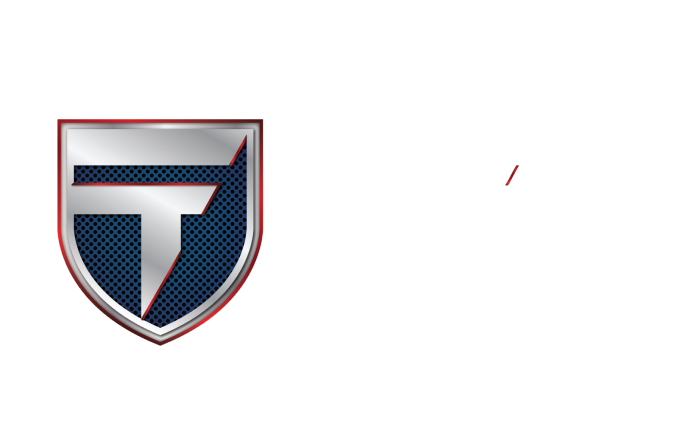In today’s rapidly evolving job market, high school graduates are faced with important decisions about their post-secondary education. Two popular options are trade schools and universities, each offering distinct advantages and considerations. While universities provide a traditional academic experience, trade schools focus on vocational training for specific careers.
Let’s explore the pros and cons of each option so you can make an informed decision based on your personal goals, interests, and career aspirations.

Pros of Attending Trade School
Trade schools offer specialized training and hands-on education tailored to specific careers or industries. Here are some of the key advantages of attending a trade school:
1. Specialized Training for Highly-Demand Skills
Trade schools provide focused, practical training directly applicable to chosen fields, ensuring students acquire hands-on skills for career success. Graduates are job-ready, gaining a competitive edge in the market, whether pursuing roles as plumbers, electricians, or HVAC techs. With high demand for skilled trades like plumbing, electrical work, welding, and automotive technology, trade school graduates find abundant job opportunities, offering job security and potential career growth.
2. Shorter Timeframe
Trade school programs typically have shorter durations compared to traditional university programs. While a bachelor’s degree typically takes four years or more to complete, trade school programs can range from a few months to two years. This shorter timeframe allows individuals to enter the workforce quickly and earn a salary sooner. Trade schools offer an attractive option for those who want to kickstart their careers without spending extensive time in school.
3. Cost-Effectiveness
Trade school programs are more affordable than a university education. With shorter durations and specialized training, students can save on tuition costs and avoid accumulating substantial student loan debt. This affordability makes trade schools appealing for individuals seeking career-focused education without a significant financial burden.
Cons of Attending Trade School
While trade schools offer numerous advantages, it’s important to consider the potential drawbacks. Here are some of the cons associated with attending a trade school:
1. Limited Scope of Education
Trade school programs primarily focus on vocational training, which means students may have limited exposure to subjects outside their chosen field. This narrower scope of education may restrict career flexibility or hinder future academic pursuits if individuals decide to explore different areas of interest later on. Unlike universities, which offer a broad range of academic disciplines, trade schools provide specialized training that may not translate over to other career paths.
2. Potential for Lower Earning Potential
While trade school graduates can enter the workforce quickly, their earning potential may be lower than those with bachelor’s or advanced degrees. Some careers in specialized trades may have salary ceilings, whereas professions requiring higher education can offer higher earning potential over the long term, such as in the medical field. Considering the long-term financial implications of choosing a trade school education is important, especially if high earning potential is a priority.
3. Lack of Transferable Credits
Credits earned at trade schools may not always transfer to a university if individuals decide to pursue a higher degree in the future. This limitation may require starting from scratch or taking additional coursework to fulfill university requirements, potentially extending the time and cost associated of obtaining a degree.
Pros of Attending University
Universities offer a comprehensive education that goes beyond vocational training. Here are some of the key advantages of pursuing a university education:
1. Comprehensive Education
Universities offer various academic disciplines, providing students with a well-rounded education. This exposure to various subjects fosters critical thinking, creativity, and a deeper understanding of the world. University education promotes intellectual growth and equips individuals with transferable skills applicable to a wide array of careers. Whether it’s studying literature, mathematics, or history, universities offer a comprehensive learning experience that goes beyond vocational training.
2. Greater Career Opportunities
Certain professions like medicine, law, engineering, and academia demand advanced degrees available only through university education. A bachelor’s degree or higher can unlock opportunities for higher-level positions and specialized career paths not easily accessible through trade school education alone. A university education is often necessary for those aspiring to these fields or seeking career flexibility.
3. Networking and Resources
Universities offer extensive networking opportunities and access to resources that can enhance career prospects. Faculty expertise, research facilities, libraries, and career services are just a few of the resources available to university students. The university environment fosters connections with peers, professors, and alumni, providing a valuable network that can aid in future job searches, professional development, and career advancement.
Cons of Attending University
While universities offer numerous benefits, there are also potential drawbacks to consider:
1. Longer Timeframe
University programs typically require more time to complete compared to trade school. Undergraduate degrees often take four years, while advanced degrees can take additional years. The extended timeframe delays entry into the workforce and can result in higher educational costs. Individuals who prefer to start their careers sooner or have limited time and resources may find the longer timeframe associated with a university education less desirable.
2. Higher Cost
University education is generally more expensive than trade school due to longer durations, tuition fees, and associated expenses. Many students rely on student loans, leading to substantial debt burdens that take years to repay. It’s essential to consider the financial implications of pursuing a university education and explore available scholarships, grants, and financial aid options to mitigate costs.
3. Less Hands-on Experience
University education tends to focus on theoretical knowledge and academic research, often lacking practical skills. In contrast, trade schools typically offer more hands-on training in specific vocational fields, providing valuable experience for individuals who prefer learning through practical application rather than theoretical study. Those thriving in a hands-on learning environment may find trade schools more suitable for their educational needs.
Make an Informed Decision and Contact Florida Trade Academy
Choosing between trade school and university involves considering personal preferences, career goals, and finances. Trade schools offer specialized training, shorter programs, cost-effectiveness, and quick entry into the workforce. At the same time, universities provide a comprehensive education, broader career opportunities, and a path to advanced degrees.
At Florida Trade Academy, we support your education journey, offering specialized training programs for immediate workforce entry. Recognizing the value of both options, we guide you toward a decision that aligns with your long-term goals. Explore opportunities at the Florida Trade Academy today to take the first step toward your future success.


